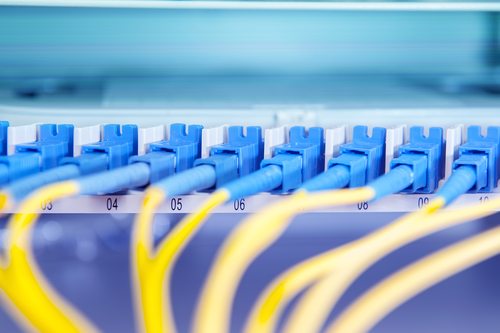Hybrid working is here to stay and this means the focus will now turn to making the remote work experience better and more secure. Even if a corporate metaverse is still years from materialising, companies will continue to invest in better collaboration tools, more efficient access to business applications and technologies that protect data and assure network reliability.
1. ‘Zero trust’ approach to be the pinnacle of enterprise security
We have heard from many of our customer security and network leaders that they fear their companies are at a higher risk to security threats due to the rapid adoption of remote work during the pandemic. To protect the digital experience of employees working from anywhere, we are likely to see a greater adoption of a ‘zero trust’ approach to bolster the security of the enterprise. Employees will have similar access, credentials, and authentication measures regardless of location. No matter where a worker is based, the experience of connecting to corporate systems will feel the same and should be frictionless. At the procurement level, more businesses will begin to initiate security audits of their suppliers and partners – similar to credit checks when someone applies for a mortgage – to prove they are following security best practices.
The hybrid working approach will continue to challenge IT departments from a networking perspective. Enterprise networks need to provide secure, reliable, resilient access from anywhere at any time. Securing connectivity between the HQ, data centres, branch offices and remote workers is essential to ensure the 24/7 operational excellence environment, employees need, in a work from anywhere and at any time, world.
2. 2022 will center on network stack technology convergence
Internet connections will continue to replace private data networks driving increases in employee productivity and improvements in customer satisfaction. Corporate networks must be agile and take a more converged approach across the network stack to fulfil this requirement. The philosophy won’t be about having lots of different technologies to cover the entirety of the network stack, but rather architecting an integrated solution from a performance, security and funtionality standpoint that can best meet the business goals and objectives. It won’t be a matter of ‘best of breed’ but ‘best for the business’; fewer individual products and more solutions that directly address the business challenges.
3. Growing compliance needs will bring more network security challenges
Data privacy and security requirements will continue to increase as the cyber-threat landscape expands. For example, the threat of cyber-attack is putting pressure on U.S. healthcare providers to improve their information privacy, security and compliance postures for patient data under the HIPAA framework and other data privacy regulation.
Environmental, Social and Governance (ESG) commitment requirements will continue to gain prominence. The recent COP 21 or the Paris Climate Conference led to a new international climate agreement, applicable to all countries, aiming to keep global warming at 1.5°C – 2°C. In order to achieve this goal governments will start to require businesses to reduce carbon emissions throughout their supply chains.
To comply with these new Environmental, Social and Governance (ESG) objectives, businesses will need to track, monitor, and measure their data like never before. Today business data is available from every device and at every stage of the journey, from physical to digital. The insights generated by this data can help businesses comply with emerging industry and national ESG mandates. New compliance demands will bring additional network security challenges to an ever-expanding digital perimeter and businesses will need to protect valuable data, employees and the company’s network from bad actors. Corporations will need to lean on the expertise of managed service providers to design solutions for an increasingly complex hybrid work environment as workers and data move further from the core and closer to edge.”
For businesses in the midst of their digital transformation, the role of the corporate network cannot be downplayed. The capability to reliably and securely connect people with people, systems with data and the internet with everything enables the shift to digital tools and automated processes and is essential for smooth and efficient business operations.
The opinions expressed in this post belongs to the individual contributors and do not necessarily reflect the views of Information Security Buzz.



